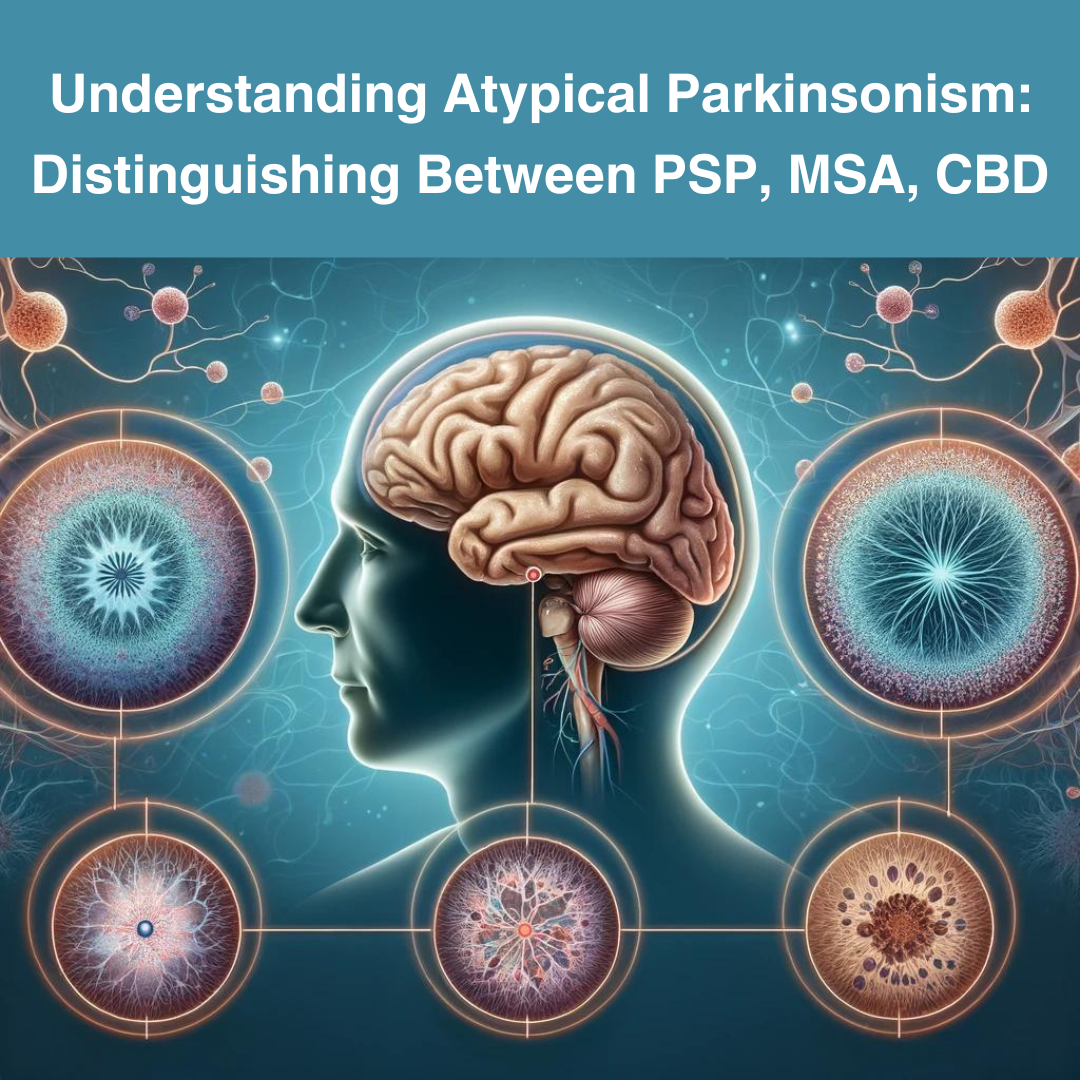
Understanding Atypical Parkinsonism: Distinguishing Between PSP, MSA, and CBD
**Progressive Supranuclear Palsy (PSP):** PSP is a rare brain disorder that affects movement, control of walking (gait) and balance, speech, swallowing, vision, mood and behavior, and thinking. The disease results from damage to nerve cells in the brain. One of the hallmark symptoms of PSP is vertical gaze palsy, which means patients have difficulty moving their eyes up or down. They may also present with frequent falls and changes in personality.
**Multiple System Atrophy (MSA):** MSA is a progressive neurodegenerative disorder characterized by a combination of symptoms that affect both the autonomic nervous system (the part of the nervous system that controls involuntary action) and movement. Symptoms include fainting spells and problems with heart rate, bladder control, motor control, and balance. MSA is divided into two primary types: MSA-P (parkinsonian-type) and MSA-C (cerebellar-type), depending on the primary symptoms at the time of evaluation.
**Corticobasal Degeneration (CBD):** CBD is a rare condition that can cause gradually worsening problems with movement, speech, memory, and swallowing. It's typically marked by asymmetric rigidity, apraxia (difficulty with motor planning), cortical sensory loss, and cognitive impairment. Unlike Parkinson's disease, tremor is not a dominant feature in CBD, and its symptoms are usually more pronounced on one side of the body.
While all these disorders share some similarity with Parkinson's Disease, such as the presence of movement disorders, they have unique features that distinguish them. PSP, MSA, and CBD progress more rapidly than Parkinson's Disease and do not respond as well to Parkinson’s medications. It's also important to note that these conditions are rarer than Parkinson's Disease.
Early and accurate diagnosis of these atypical parkinsonian disorders is essential for managing symptoms and planning care. However, due to the overlap in symptoms with Parkinson’s Disease and among each other, diagnosing these conditions can be challenging. Physicians often rely on clinical evaluation, detailed patient history, and sometimes neuroimaging techniques for diagnosis.
Treatment for these disorders is mainly supportive and symptomatic. This can include medications to help manage symptoms, physical therapy to aid with movement problems, speech therapy, and occupational therapy. In advanced cases, support for the patient and caregivers becomes a critical component of care.
In conclusion, while PSP, MSA, and CBD share some similarities with Parkinson's Disease and each other, they are distinct disorders with their own set of challenges. Increased awareness and understanding of these conditions are important for early diagnosis and effective management.

 Donate
Donate



